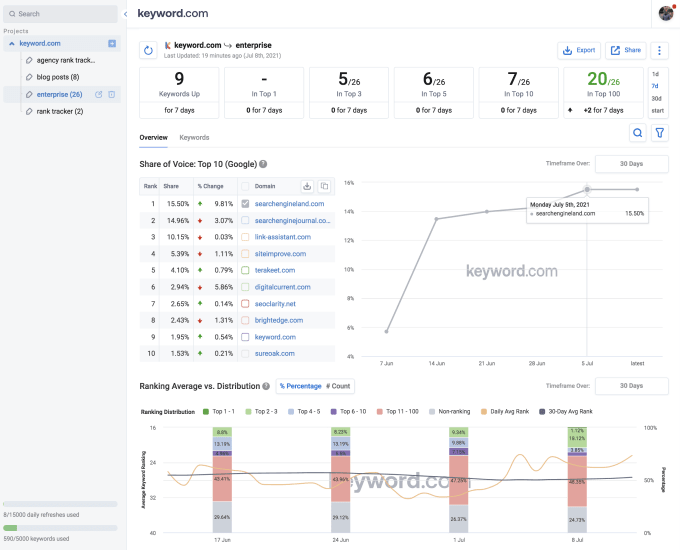In the ever-evolving landscape of digital marketing, understanding the significance of accurate keyword position is crucial for businesses aiming to enhance their online visibility. The right keywords can make or break a website’s search engine ranking, ultimately determining its success in attracting organic traffic. This is especially important as search engines continually refine their algorithms, making it imperative for marketers to stay ahead of the curve. By focusing on accurate keyword positioning, businesses can ensure that their content reaches the right audience at the right time, fostering engagement and conversions.
Effective search engine optimization (SEO) hinges on selecting the most relevant keywords and strategically placing them throughout your content. Accurate keyword position refers to the specific location of these keywords within a webpage, significantly influencing how search engines rank your site. When executed correctly, this practice can elevate your website’s visibility, improve its authority, and ultimately drive more traffic to your pages. As we delve deeper into this topic, we will explore various aspects of keyword positioning, offering practical insights and strategies to enhance your SEO efforts.
Moreover, understanding the nuances of accurate keyword position can empower marketers to refine their content strategies. From identifying high-value keywords to analyzing competitors' keyword placements, gaining insights into keyword positioning is vital for building a robust online presence. In this article, we will discuss the importance of accurate keyword position, how to analyze it effectively, and actionable tips for optimizing your website's content for maximum impact.
What is Accurate Keyword Position?
Accurate keyword position refers to the strategic placement of keywords within a webpage to optimize its visibility on search engine results pages (SERPs). This involves not just selecting the right keywords, but also determining the best locations within the content to incorporate them. The main objective is to ensure that search engines can easily identify the relevance of the content to users’ search queries.
Why is Accurate Keyword Position Important?
Accurate keyword position plays a pivotal role in SEO for several reasons:
- Improved Ranking: Properly placed keywords can improve your website’s ranking on SERPs, making it easier for users to find your content.
- Enhanced Relevance: Keywords that are strategically positioned enhance the relevance of your content to specific search queries, attracting more targeted traffic.
- Better User Experience: Well-structured content with appropriate keyword placement can lead to a better reading experience, keeping users engaged.
- Increased Click-Through Rate (CTR): Pages that rank higher with well-placed keywords are more likely to receive clicks, leading to higher traffic levels.
How to Determine Your Current Keyword Position?
To assess your current keyword position, you can utilize various tools and techniques:
- Keyword Tracking Tools: Tools like SEMrush, Ahrefs, and Moz can help you track your keyword positions over time.
- Google Search Console: This free tool enables you to see how your website performs in search results, including keyword rankings.
- Manual Searches: Conducting manual searches for your target keywords can give you immediate insights into your ranking.
How to Optimize for Accurate Keyword Position?
Optimizing for accurate keyword position involves several key strategies:
1. Conduct Thorough Keyword Research
Understanding what your audience is searching for is the first step in optimizing your keyword position. Use keyword research tools to identify relevant keywords and phrases that have high search volume and low competition. Aim to find long-tail keywords that are specific to your niche.
2. Use Keywords in Key Areas
Place your primary keywords in the following areas of your webpage:
- Title Tag: This is one of the most important places for your primary keyword.
- Meta Description: Including keywords here can improve click-through rates.
- Headings: Utilizing keywords in H1, H2, and H3 tags helps search engines understand the structure of your content.
- First Paragraph: Incorporating keywords early in your content signals relevance to search engines.
3. Maintain a Natural Flow
While keyword placement is key, it’s essential to maintain a natural flow in your writing. Overstuffing your content with keywords can lead to penalties from search engines. Aim for a keyword density of around 1-2% and prioritize readability.
Can Accurate Keyword Position Improve Your Website’s Performance?
Absolutely! Accurate keyword position can significantly enhance your website’s performance in various ways:
- Higher Rankings: Websites with optimized keyword positions tend to rank higher on SERPs.
- Increased Organic Traffic: Better rankings lead to more organic traffic, which can result in higher conversion rates.
- Enhanced Brand Authority: Consistently appearing at the top of search results can elevate your brand’s authority in your niche.
What Tools Can Help You Track Accurate Keyword Position?
Several tools can assist you in tracking your keyword positions effectively:
- SEMrush: Offers comprehensive keyword tracking and analysis features.
- Ahrefs: Provides keyword position tracking as part of its suite of SEO tools.
- Google Analytics: While not primarily a keyword tracking tool, it can provide insights into how specific pages are performing.
Are There Common Mistakes to Avoid in Keyword Positioning?
Yes, several common mistakes can hinder your efforts in achieving accurate keyword position:
- Keyword Stuffing: Overusing keywords can lead to penalties from search engines.
- Ignoring Long-Tail Keywords: Focusing solely on short, high-competition keywords can limit your reach.
- Neglecting Content Updates: Failing to update your content with new keywords can lead to outdated strategies.
Conclusion: Mastering Accurate Keyword Position for Success
In conclusion, mastering accurate keyword position is essential for any business looking to improve its online presence. By understanding the importance of keyword placement, employing effective optimization strategies, and avoiding common pitfalls, you can enhance your website’s visibility and drive more targeted traffic. Remember, SEO is an ongoing process that requires continuous monitoring and adjustments. By staying informed about the latest trends and best practices, you can ensure that your digital marketing efforts yield the best possible results.
Mastering The Art Of Checking Keywords Ranking On Google
Exploring The Wonders Of HDMoves Hub
Discovering Grace Charis Leake: A Rising Star


